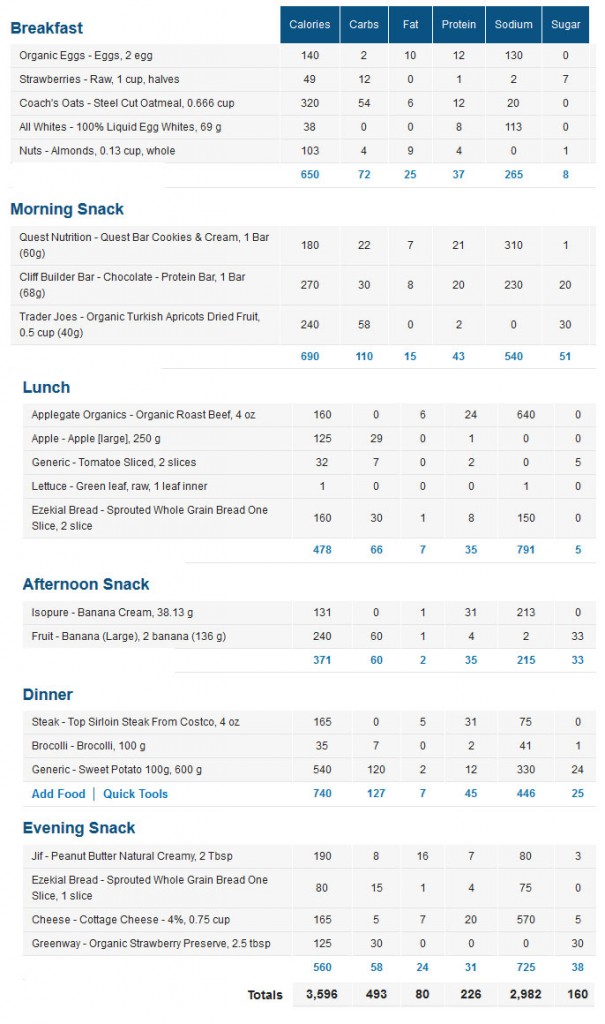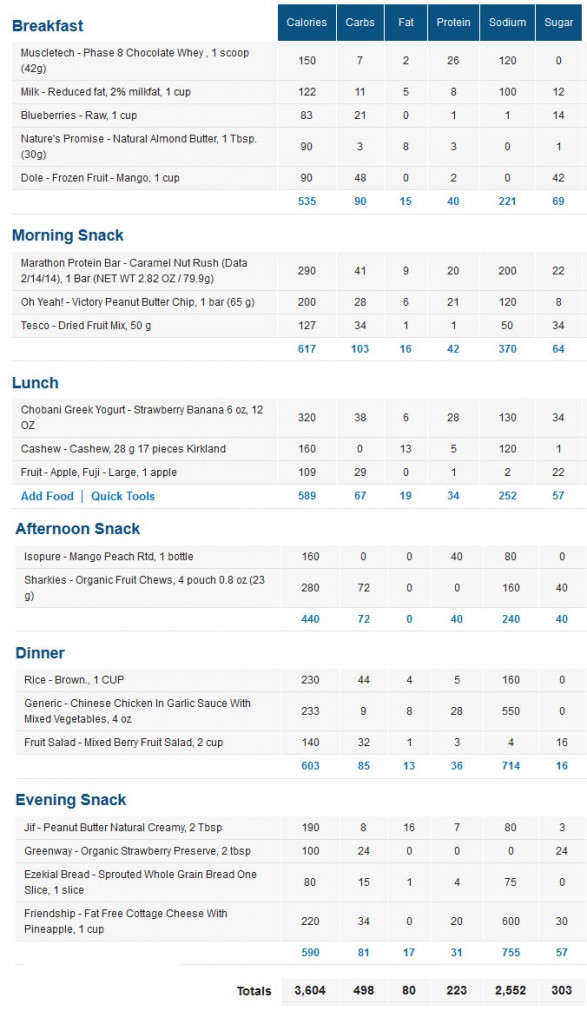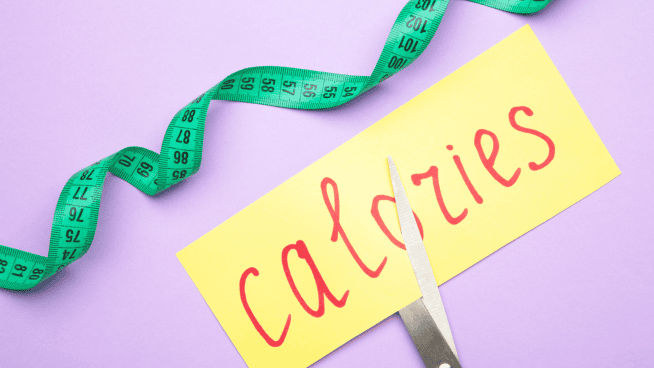Build Muscle With This Diet for Young Athletes
In sports, the margin between success and failure is incredibly slim. Practice and preparation often make the difference between winning and losing—and that’s why you spend all that extra time in the weight room, in the film room and on the field. Although those extra hours are well spent, not enough young athletes realize they can get a big edge on their competition in a different place—the kitchen.
Nutrition is a huge part of any athlete’s success. If you’re looking to build muscle and become a more dominant athlete, check out this diet plan, created in consultation with Dr. Charlie Seltzer from Lean 4 Life. It will help make you a bigger, stronger and faster athlete.
High school athletes require a solid amount of protein along with high-quality carbs (including fiber) and healthy fat. Depending on their biochemical makeup, metabolism, sport and goals, the exact quantities of protein, fat and carbs they need will differ.
In the case of a 16-year-old male who wants to build muscle, he needs about 1.4 grams of protein per pound of body weight. If he has a fast metabolism, increasing carbs and fat as well as protein will facilitate muscle protein synthesis. If his metabolism is slower and he’s prone to fat gain, consuming a lower amount of carbs and fat and a higher amount of protein makes sense. Everyone is different, so use this guide as a jumping off point and adjust it based on your knowledge of your own body and your likely response to the plan.
You’ll notice the plan calls for roughly 500 grams of carbohydrates a day. It’s well known that protein builds muscle, but many athletes pay too little attention to adequate carbohydrate consumption. The body burns carbs instead of protein for fuel, leaving the protein to build muscle mass. Carbs also are an important energy source and, despite popular belief, they won’t make you fat if you live the active life of an athlete.
Learn why everything you think you know about carbs is wrong.
When starting high school athletes on a nutritional program, I use a breakdown of 55 percent carbs, 25 percent protein and 20 percent fat. A 160-pound male athlete will start at about 225 grams of protein, 500 grams of carbs and 80 grams of fat for a total daily caloric goal of around 3,600. It is wise to have your body fat measured regularly while following this plan to ensure your weight gain is not predominantly fat.
When creating the plan, which you can see below, we paid close attention to convenience and portability, since virtually no one can take a private chef with them to high school. On Day 1, lunch is the pre-training meal, and the protein powder with bananas is for post-workout. Feel free to adjust the meals according to your schedule. The first day is geared toward somebody who likes to cook and/or has helpful parents. The second day is less ideal nutritionally but more convenient. Here, breakfast is a smoothie you can blend the night before. The post-workout meal of Isopure and fruit gummies is easy and convenient.
Diet is extremely important in the muscle-building process. You can work out as much as you want, but if you don’t fuel your body properly, you will never reach your full potential. Combining proper training with this program and its necessary distribution of carbs, protein and fats will help you build muscle and become a better overall athlete. Start with the two sample days listed below.
Day 1
Day 2
RECOMMENDED FOR YOU
MOST POPULAR
Build Muscle With This Diet for Young Athletes
In sports, the margin between success and failure is incredibly slim. Practice and preparation often make the difference between winning and losing—and that’s why you spend all that extra time in the weight room, in the film room and on the field. Although those extra hours are well spent, not enough young athletes realize they can get a big edge on their competition in a different place—the kitchen.
Nutrition is a huge part of any athlete’s success. If you’re looking to build muscle and become a more dominant athlete, check out this diet plan, created in consultation with Dr. Charlie Seltzer from Lean 4 Life. It will help make you a bigger, stronger and faster athlete.
High school athletes require a solid amount of protein along with high-quality carbs (including fiber) and healthy fat. Depending on their biochemical makeup, metabolism, sport and goals, the exact quantities of protein, fat and carbs they need will differ.
In the case of a 16-year-old male who wants to build muscle, he needs about 1.4 grams of protein per pound of body weight. If he has a fast metabolism, increasing carbs and fat as well as protein will facilitate muscle protein synthesis. If his metabolism is slower and he’s prone to fat gain, consuming a lower amount of carbs and fat and a higher amount of protein makes sense. Everyone is different, so use this guide as a jumping off point and adjust it based on your knowledge of your own body and your likely response to the plan.
You’ll notice the plan calls for roughly 500 grams of carbohydrates a day. It’s well known that protein builds muscle, but many athletes pay too little attention to adequate carbohydrate consumption. The body burns carbs instead of protein for fuel, leaving the protein to build muscle mass. Carbs also are an important energy source and, despite popular belief, they won’t make you fat if you live the active life of an athlete.
Learn why everything you think you know about carbs is wrong.
When starting high school athletes on a nutritional program, I use a breakdown of 55 percent carbs, 25 percent protein and 20 percent fat. A 160-pound male athlete will start at about 225 grams of protein, 500 grams of carbs and 80 grams of fat for a total daily caloric goal of around 3,600. It is wise to have your body fat measured regularly while following this plan to ensure your weight gain is not predominantly fat.
When creating the plan, which you can see below, we paid close attention to convenience and portability, since virtually no one can take a private chef with them to high school. On Day 1, lunch is the pre-training meal, and the protein powder with bananas is for post-workout. Feel free to adjust the meals according to your schedule. The first day is geared toward somebody who likes to cook and/or has helpful parents. The second day is less ideal nutritionally but more convenient. Here, breakfast is a smoothie you can blend the night before. The post-workout meal of Isopure and fruit gummies is easy and convenient.
Diet is extremely important in the muscle-building process. You can work out as much as you want, but if you don’t fuel your body properly, you will never reach your full potential. Combining proper training with this program and its necessary distribution of carbs, protein and fats will help you build muscle and become a better overall athlete. Start with the two sample days listed below.












